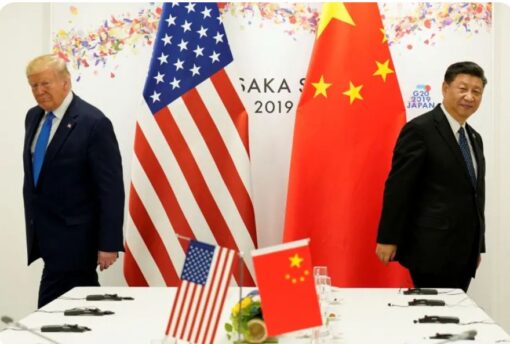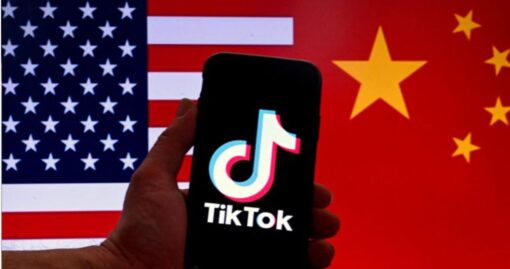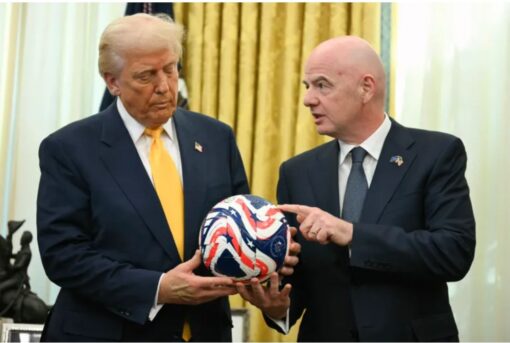TikTok, the viral short-form video app that has become a global cultural phenomenon, is once again at the center of a political storm in the United States.
On Thursday, President Donald Trump signed an executive order that lays the groundwork for a controversial deal transferring control of TikTok’s U.S. operations into the hands of some of his most trusted allies.
The proposed arrangement would reduce Chinese ownership of TikTok in the United States to just 20 percent, with the remaining control distributed among a group of powerful American investors.
Trump hailed the move as a way to safeguard U.S. national security while allowing millions of Americans to continue enjoying the app, which has more than 170 million active users in the country.
However, the deal has already sparked heated debate, raising questions about politics, technology, security, and the future of one of the world’s most influential social media platforms.

Why TikTok Is Under Pressure
For years, Washington has expressed concerns about TikTok’s Chinese parent company, ByteDance. Lawmakers and intelligence agencies have repeatedly warned that the app could be exploited by Beijing to gather sensitive data on American users or influence online discourse through its recommendation algorithm.
These suspicions culminated in legislation under Trump’s predecessor, Joe Biden, that required ByteDance to divest its U.S. operations or face a nationwide ban. While Trump initially delayed enforcement multiple times, the latest order extends the deadline to January 23, 2026, offering time to finalize the deal.
The pressure on TikTok reflects a broader struggle between Washington and Beijing over control of digital infrastructure, data security, and influence in the tech-driven global economy.
The Investors Behind the Deal
At the heart of Trump’s executive order is a consortium of American investors with deep financial and political connections. Among the names are Oracle founder Larry Ellison, tech magnate Michael Dell, and media tycoon Rupert Murdoch. Also included are Silver Lake Management and venture capital powerhouse Andreessen Horowitz.
Trump described these figures as “highly sophisticated investors” capable of ensuring that TikTok remains independent of political bias while safeguarding U.S. interests. “The proposed divestiture would allow the millions of Americans who enjoy TikTok every day to continue using it while also protecting national security,” he said during the signing ceremony at the White House.
Still, critics argue that consolidating control of such a powerful platform in the hands of Trump’s allies risks blurring the line between governance, politics, and business.
The Algorithm Question
One of the most sensitive issues in the deal is control of TikTok’s recommendation algorithm—the “secret sauce” that has propelled the platform to global dominance. The algorithm’s ability to predict and amplify user interests is considered one of the most advanced in the world, making TikTok a unique player in the social media ecosystem.
According to the White House, the U.S. version of TikTok will feature a homegrown model of the algorithm, which will be “continuously monitored” to prevent undue foreign influence. For policymakers, ensuring that China cannot manipulate what content U.S. users see is a crucial national security priority.
But questions remain about whether duplicating TikTok’s algorithm without ByteDance’s involvement is technically possible—or whether American investors will inevitably rely on Chinese engineers in some capacity.
China’s Response
Beijing has expressed dissatisfaction with the deal, though officials have stopped short of outright rejection. After a phone call between Trump and Chinese President Xi Jinping, Chinese state media reported that Xi approved the arrangement, framing it as a market-based negotiation consistent with Chinese law.
Nonetheless, China’s foreign ministry spokesperson Guo Jiakun emphasized that Beijing expects the United States to provide a “fair, open, and non-discriminatory business environment” for Chinese companies. This statement reflects broader Chinese frustration at what it sees as U.S. protectionism and unfair targeting of its technology firms.
TikTok itself has yet to comment publicly, but analysts suggest that ByteDance’s leadership may feel pressured to accept the deal to preserve its foothold in the lucrative U.S. market.
Valuation and Future Prospects
Vice President JD Vance, who oversaw negotiations, estimated that the new U.S. entity of TikTok would be valued at around $14 billion. He noted, however, that final pricing would be left to the investors involved.
Industry analysts warn that the true value of TikTok’s U.S. operations may be significantly higher, given its vast user base and advertising potential. By comparison, Meta’s Instagram is valued at hundreds of billions of dollars, despite having fewer unique engagement features than TikTok.
For the investors, the deal represents not just a political maneuver but also a potentially massive financial windfall—if the platform continues to thrive under American ownership.
Political Overtones
Trump has insisted that the deal is not about politics. At Thursday’s ceremony, he joked that if he could make TikTok “100 percent MAGA” he would, but assured reporters that all groups, philosophies, and political ideologies would be treated fairly on the platform.
Yet, the involvement of long-time Trump allies such as Ellison and Murdoch has fueled speculation that TikTok could become entangled in partisan battles ahead of the 2026 elections. Critics argue that social media platforms already wield enormous influence over public discourse, and giving control of TikTok to Trump-friendly investors could tilt the playing field.
Democrats in Congress are expected to push for hearings on the deal, demanding transparency about ownership stakes, algorithm oversight, and the role of political considerations in structuring the agreement.
Broader Implications
The restructuring of TikTok’s U.S. operations is part of a larger trend in which countries seek to control foreign-owned tech platforms that operate within their borders. India has already banned TikTok outright, while the European Union has introduced sweeping regulations aimed at reducing dependence on non-European digital services.
In the United States, the TikTok case sets a precedent for how Washington may handle future conflicts with Chinese tech firms, from e-commerce giants like Shein to hardware producers such as Huawei. The underlying question is whether global digital platforms can remain truly international—or whether they will increasingly fragment along geopolitical lines.

What Happens Next
The next 120 days will be crucial. Investors must finalize their agreements, restructure the company’s operations, and ensure compliance with U.S. security standards. Regulators will likely scrutinize every aspect of the transaction, from algorithm monitoring to data storage practices.
If successful, TikTok will continue operating in the United States under a new American-led ownership model. If not, the app could face suspension or outright ban, depriving millions of users of one of their favorite platforms and shaking up the global social media landscape.
For now, uncertainty looms. While Trump and his allies celebrate the deal as a victory for national security and free enterprise, its long-term success depends on balancing business interests, technological feasibility, and political realities.
A Defining Moment for Digital Power
The TikTok deal is more than a business transaction. It is a defining moment in the ongoing struggle for digital sovereignty, data security, and political influence in the 21st century. By placing control of one of the world’s most powerful platforms into the hands of politically connected investors, the United States has charted a bold but controversial path.
Whether this new arrangement safeguards American interests or undermines democratic principles remains to be seen. What is clear is that TikTok’s future will not only shape the social media habits of millions but also serve as a test case for the future of global technology governance.
For the millions of young Americans scrolling through TikTok daily, the changes behind the scenes may seem invisible—for now. But the decisions made in Washington and Beijing will ultimately determine whether TikTok continues to be a hub of creativity and entertainment, or whether it becomes another casualty of geopolitical rivalry.


